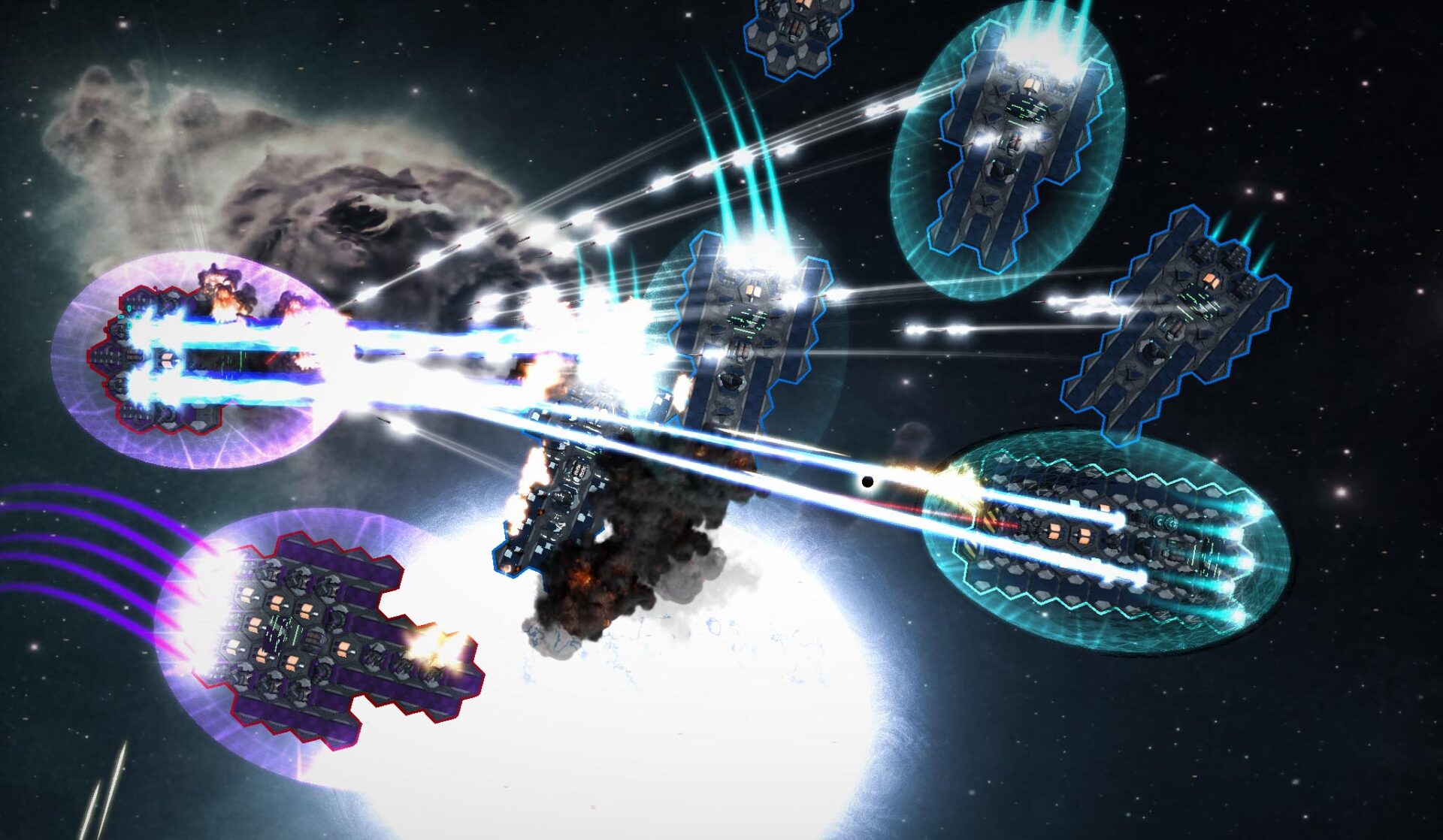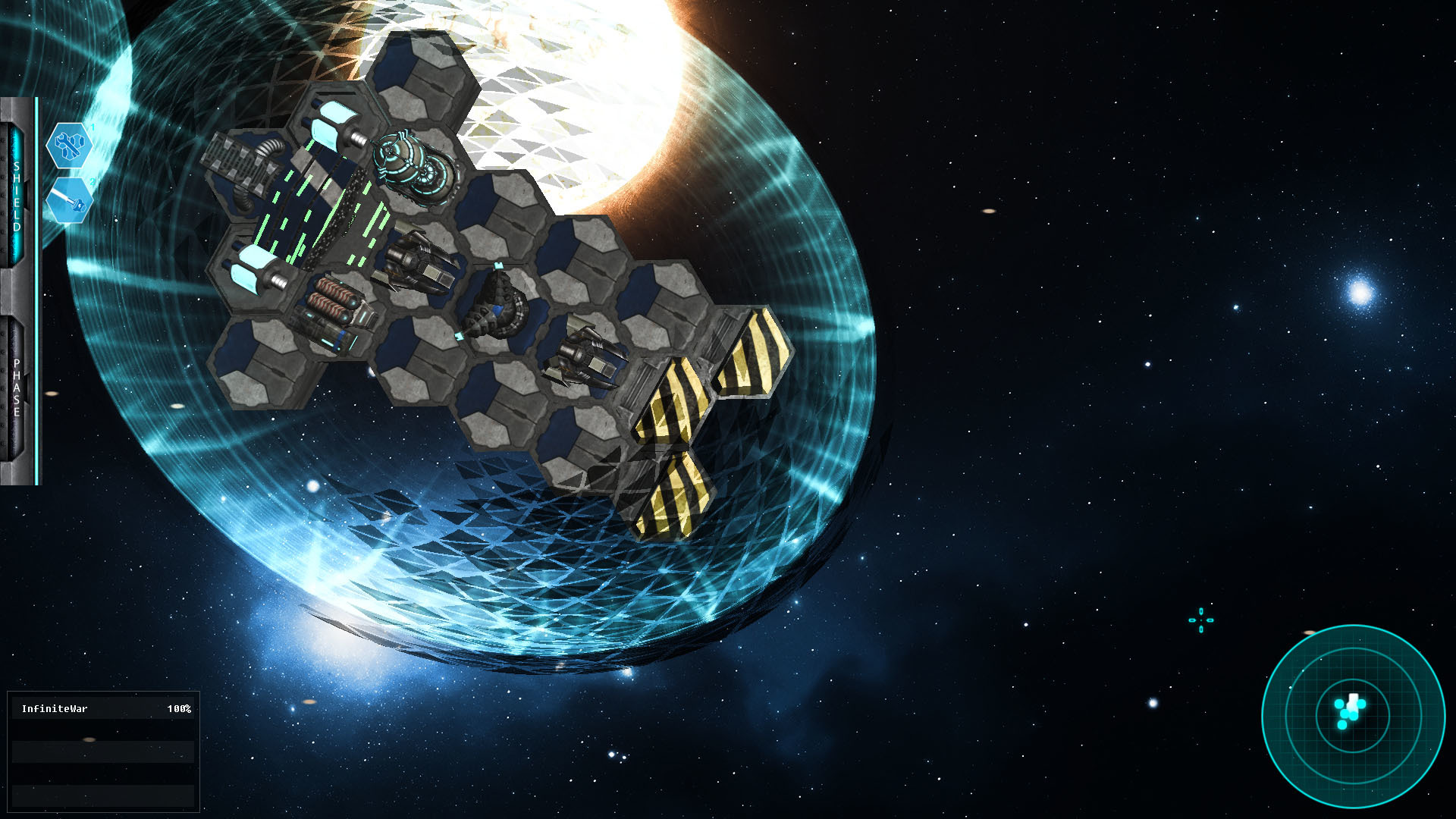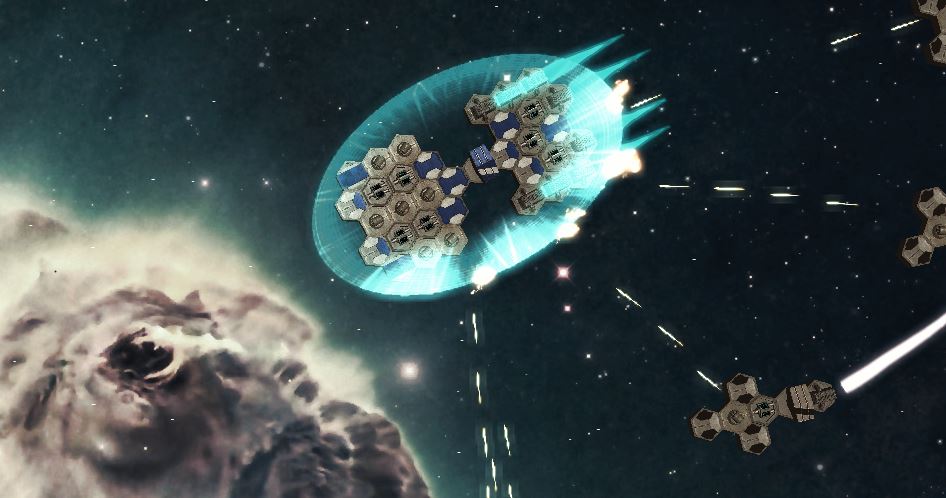HEXTERMINATE – v2.0
Date
April 8, 2024
Views
201 Views
Reading Time
4 Mins Read
It has been a long time since Hexterminate has had a release, and given the size of the changes I think it justifies a 2.0 release! I’ve added native Linux support, done an overhaul of the resources and energy systems, as well as many other improvements.
HEXTERMINATE – Infinite War
Date
September 23, 2020
Views
158 Views
Reading Time
< 1 Min Read
After a couple of months of development, the Infinite War update is ready. With it, HEXTERMINATE gains a new game mode with procedurally generated galaxies and brings new challenges to the players.
HEXTERMINATE – towards the Infinite War
Date
June 14, 2020
Views
160 Views
Reading Time
2 Mins Read
After a few updates over the last couple of weeks which addressed the issues some people were having with ramming, development time is shifting to the Infinite War update. I thought I’d give you an overview of what is currently being worked on.
HEXTERMINATE – a week since release
Date
May 30, 2020
Views
152 Views
Reading Time
2 Mins Read
One week, four updates. But let us have a look at what new features will be coming with the next updates!
Replacing Havok with Bullet
Date
October 2, 2018
Views
154 Views
Reading Time
4 Mins Read
The issue Most people involved in games development have likely heard of Havok Physics: a middleware solution which provides collision detection. HEXTERMINATE used Havok for a long time, as it was free for Windows even in commercial projects, as long as they didn’t sell over a certain threshold. However, the hobbyist version has stopped being distributed years ago and this caused some issues: more modern versions of Visual Studio weren’t supported (anything past VS2012) and most importantly, could the game still be shipped with it? An open-source approach The alternative chosen was to use the open-source library Bullet: Conceptually similar: most of what HEXTERMINATE uses could be done in Bullet without massive refactoring. Functionally equivalent: there were no holes in the feature list, everything I needed was present. Permissive licence: the ZLIB licence puts essentially no restrictions on the game. Source code available: I could republish the library binaries myself, getting me up and running in VS2017 quickly. Linux support: although not something I have spent time on, Havok was the last library holding off multi-platform support. Making it all work Getting the basics up and running was fairly straightforward. What ended up taking up most of the time was that many places in the game’s code were using Havok’s maths library rather than GLM, which required some head scratching and debugging to make sure that it was all working. Most of it was fine, but swapped order of operations caught me off-guard a couple of times. When a battle goes wrong, it can go really wrong. In the end it was actually the smaller things that took the longest: getting callbacks with the required information for when two ships collide was non-trivial, as I needed information about which two modules were colliding, not just the parent “ships”. The other…
September development highlights
Date
September 28, 2015
Views
150 Views
Reading Time
2 Mins Read
It has been a busy month in HEXTERMINATE’s universe. I’ve assembled a short trailer to showcase the game, backed as usual by =kontinue’s great sound track! Be sure to check it out. But lets take a look at the game’s development itself. Sound effects A game can’t be complete without sound effects, even if it is a space game and have to ignore little things like physics going “you’re aware there’s no sound in space, right?” Hogwash. Most of the sound effects are now in place, making use of FMOD’s positional audio which made it easy to implement automatic panning and volume rolloff based on distance. Overall I’m quite pleased with it and it makes battles sound far, far more alive. I’ve also written a small post on the the implementation gotchas that might be of use to other developers. Balancing pass Balancing a game’s is almost always tricky and HEXTERMINATE is no exception to this. The variety of factions, the kinds of ships they use and the large amount of modules that can be used make the task of balancing everything properly a fairly time consuming one. Overall the pace of the game has been slowed down as ships were exploding too quickly, which made it both difficult for the player to manage to pull successful, higher-risk raids into hostile sectors and fairly frustrating to try and keep a fleet’s losses manageable. Additionally, most ships of the Ascent and Iriani factions have been redesigned and made more specialised. The Iriani in particular remain, as before, terrifying: attacking their territory is not for the weak of heart or for those afraid of losing ships in the process. Of course that over the campaign you’ll have to conquer their homeworld but hey, no one said that the life of an Imperial captain was an easy one. Loading…






